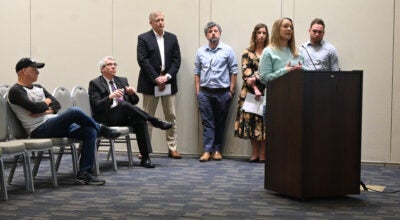Duke, Progress promise to build new power lines
Published 12:00 am Monday, March 26, 2012
RALEIGH (AP) — Duke Energy and Progress Energy said today they’ll spend $110 million to build new power transmission lines or enhance existing ones in a third bid to get approval from federal regulators for a merger creating the largest U.S. electric utility.
The Federal Energy Regulatory Commission twice last year said the companies did not do enough to protect competition in their North Carolina and South Carolina home markets.
Duke Energy and Progress Energy last month told North Carolina regulators they’re willing to spend up to $150 million to reduce competition concerns. The utilities now say they will launch seven transmission projects to increase the electricity that can flow into the states from outside suppliers.
“We’re essentially expanding the ability to bring in energy from outside resources such that wholesale customers within this region can have access to the outside resources,” Progress Energy spokesman Mike Hughes said.
The projects include one new transmission line in Eastern North Carolina already being planned, new equipment that increases transmission capacity of existing power lines and adding extra lines to existing towers, Hughes said. None of the projects requires buying land or rights of way, so they could be completed within three years, he said.
Charlotte-based Duke and Raleigh-based Progress also propose selling a defined amount of power at set prices to three trading companies, with the intention that they would resell it to electric utilities and cooperatives in the Carolinas.
In September, the FERC questioned the deal’s impact on customers in North and South Carolina. Regulators suggested that the companies consider a number of measures that would diminish their influence, such as selling power plants, building new transmission lines, or giving up control of their transmission system to a regional operator.
The companies responded with a plan to sell excess electricity at a fixed price to wholesale buyers in their Carolinas territories. Federal regulators said that didn’t go far enough.
If approved, the combined company would serve 7.1 million customers in North Carolina, South Carolina, Florida, Indiana, Ohio and Kentucky.




